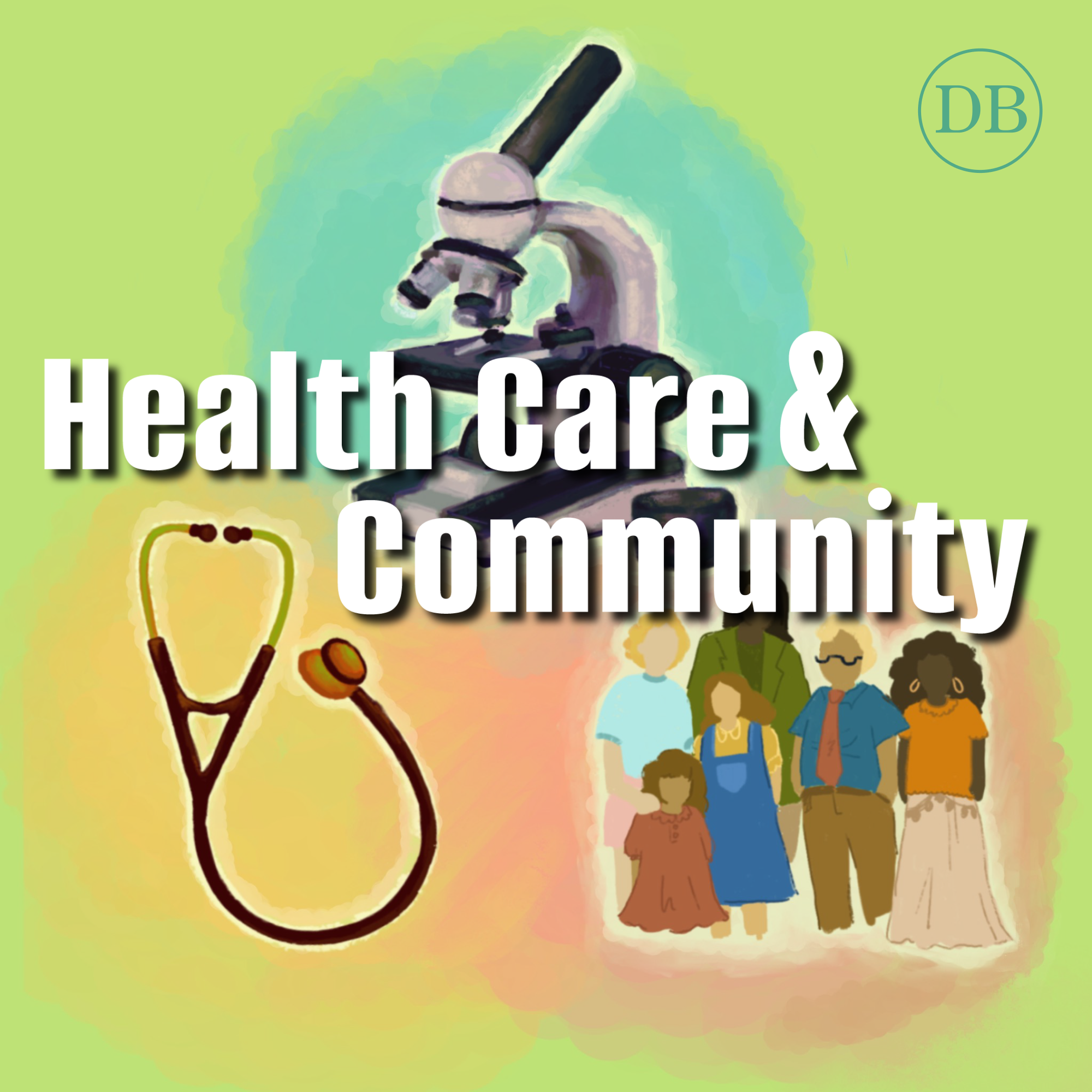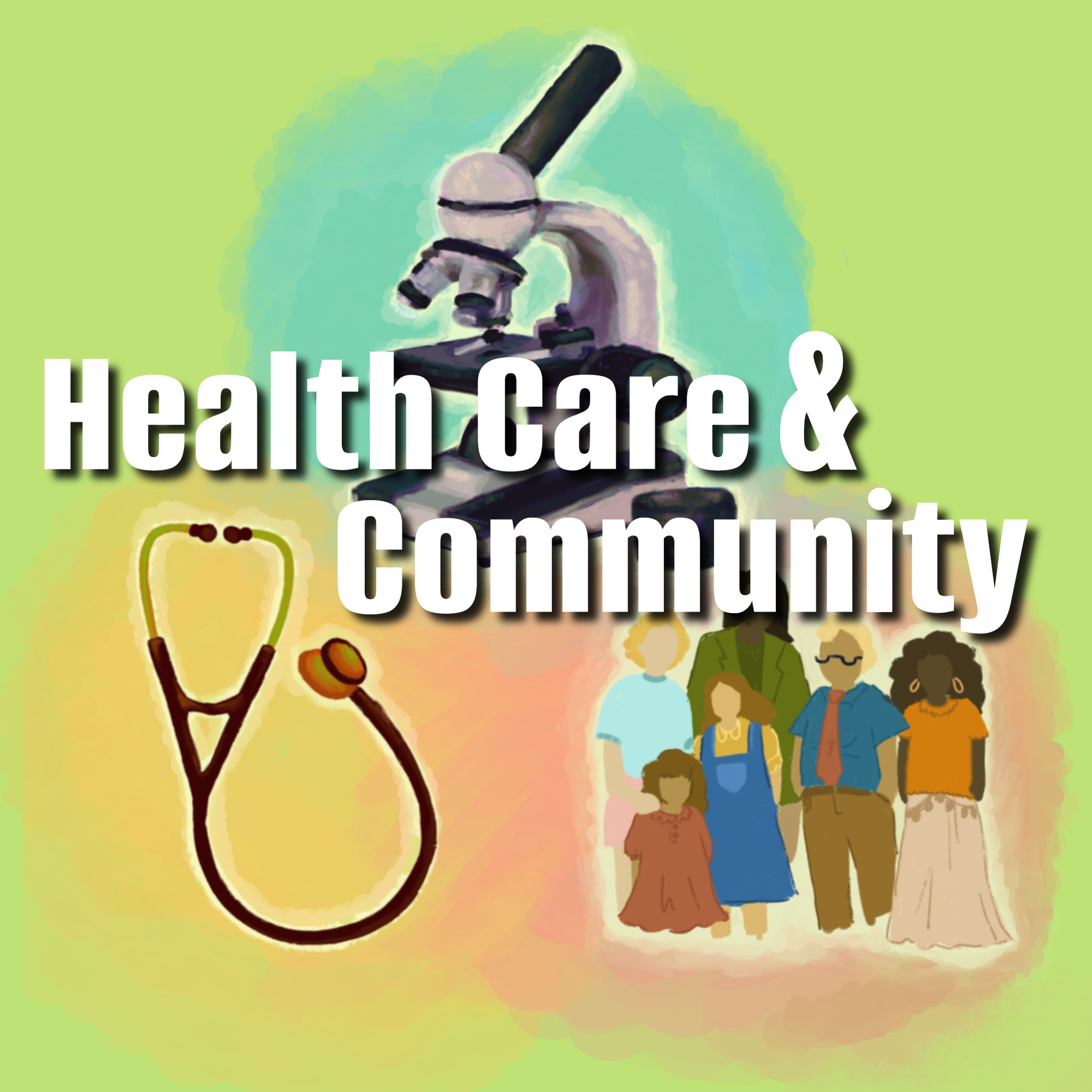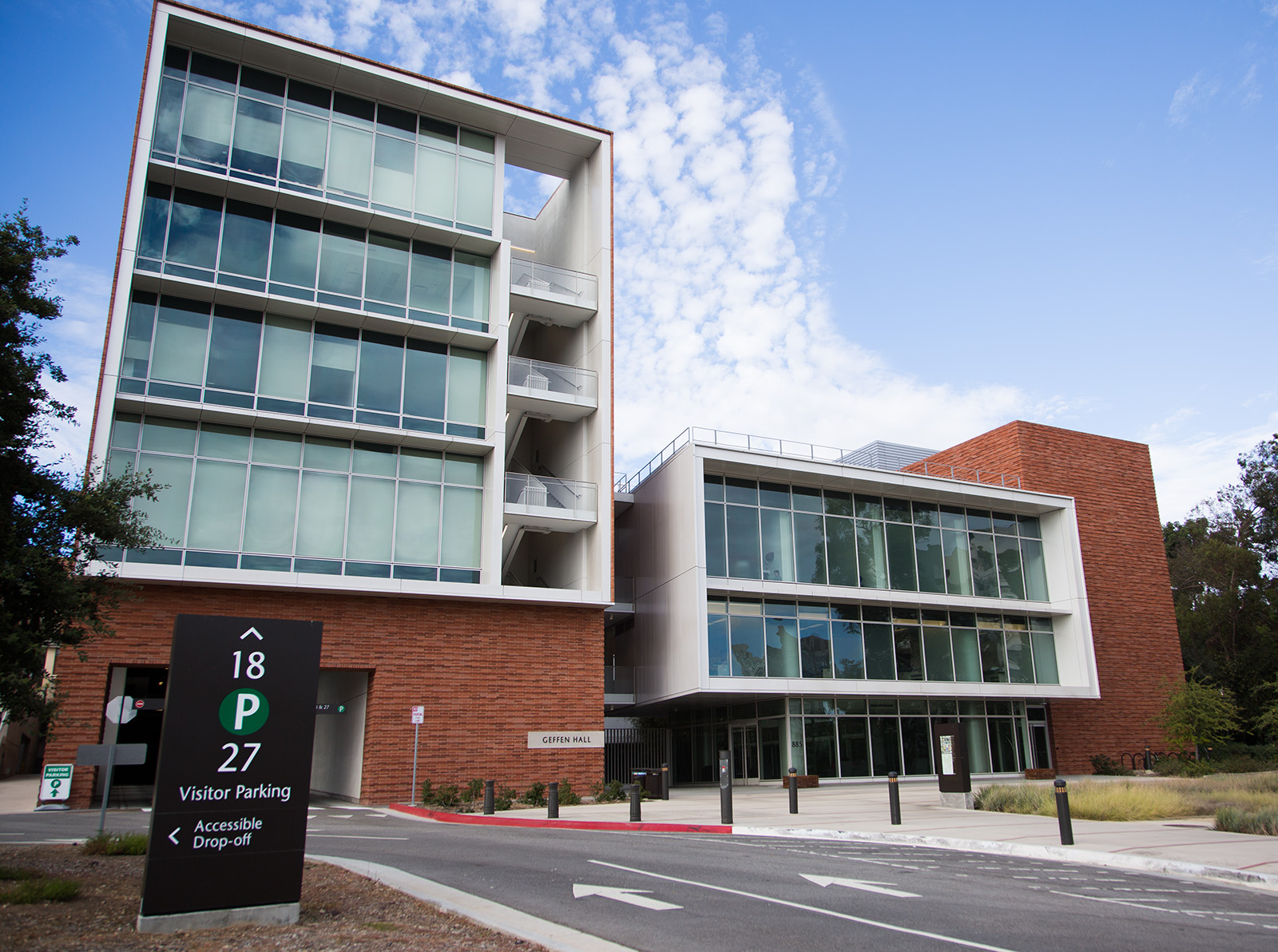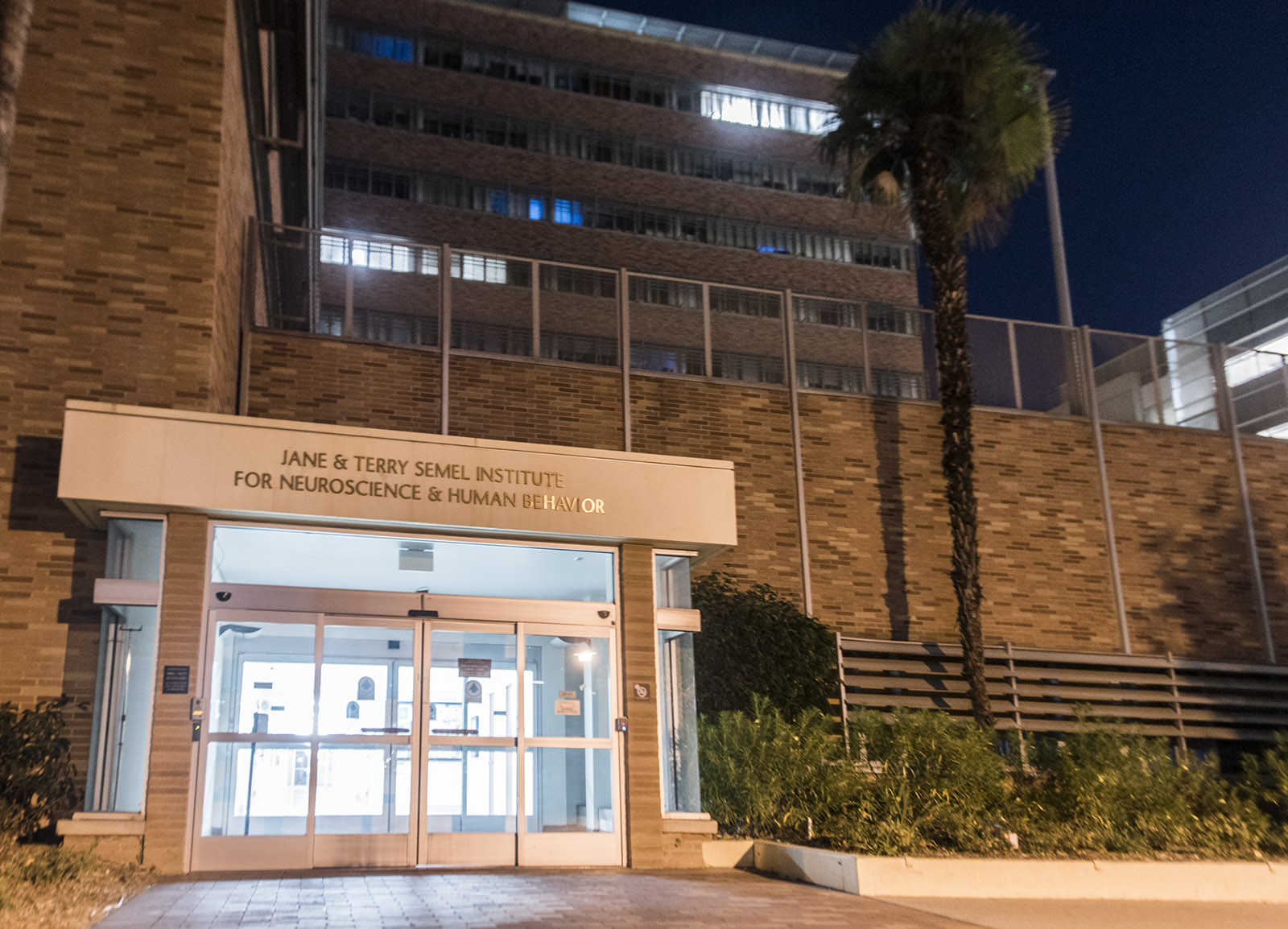Health Care & Community: Research and Clinical Practice

Photo credit: Lindsey Murto
By Danielle H. Cho
June 6, 2024 10:17 a.m.
In the second episode of this miniseries, Professor Jocelyn Meza joins Podcasts contributor Danielle Cho to discuss her research and beliefs regarding youth-serving health care.
Danielle Cho: In this interview, I talked with Professor Jocelyn Meza, an assistant professor in residence at the Department of Psychiatry and Biobehavioral Sciences at UCLA in the David Geffen School of Medicine, and also a licensed psychologist. We talked about her work on youth-serving systems and how they can be more cognizant of social and cultural factors to better serve this group and prevent self-harm, her journey into this line of work, her hopes for how her research and related work is able to impact policy, some of her most interesting findings and how her clinical practice and research inform each other to create new paths of exploration.
Could you start out by just introducing yourself, your position at UCLA and some of the work that you do?
Jocelyn Meza: Of course, yes. My name is Jocelyn Meza, and I am an assistant professor in residence at the Department of Psychiatry and Biobehavioral Sciences at UCLA in the David Geffen School of Medicine, and I am also a licensed psychologist and I do both clinical services at UCLA providing treatment for families and adolescents that struggle with self harm and mood disorders. And I also have research in the lab that I lead and that I founded it’s called the Health Equity access research and treatment lab. It’s called the heart lab. And we conduct research to try to understand what are the social cultural factors or predictors that are associated with self harm and suicide amongst different groups, particularly college students and adolescents that have been impacted by the juvenile legal system and the child welfare system? So I’m interested in these larger systems like school systems, and child serving systems and how those might interact with social cultural factors to better predict suicide and self harm outcomes.
DC: That sounds like very, very important research and like that’s super cool. How did you get interested in this sphere of work? What kind of motivated your focus on this side of research?
JM: Yeah, I mean, I think for a lot of us that have become researchers. A lot of the things that we do have are impacted by our lived experiences. So for me, I was once a college student as well. I was first generation, I came from a low income family. I was the very first in my family to even graduate high school, let alone go to college. So for me, when I was actually an undergraduate at UCLA, for me to be a first generation, Mexican American student on campus, you know, I struggled to figure out how I belonged on campus and how to just survive in an environment that was new to me and I think the more that I advanced my training and my research, I realized that I wasn’t the only one that struggled with that. I then became a mentor and worked with a lot of undergrads and a lot of them that came from immigrant families from another country that were the first in their family to be in a college setting. They all had a very similar narrative, right, that this is a new space that we don’t know how to navigate. A lot of them felt that they didn’t belong on campus. A lot of them felt that it wasn’t a welcoming space and that the culture wasn’t inclusive. So that really got me thinking, you know, how are these experiences that a lot of people are having, how is that associated with their mental health? And better yet, what can I do to improve those factors right so my work doesn’t just focus on understanding what I call social cultural processes, but how do we develop interventions that actually target those experiences and again, lived experience when I myself was in therapy. My therapist would never bring in the subject of culture and would never bring in the subject of belonging. And I just felt like something was missing. And this was also something that I heard from other students that they felt that the therapy that they were in, wasn’t really responsive to their experiences, as you know, an immigrant student as a undocumented student as a first generation student. So I really hope that my lived experiences with being a first gen student helped me understand it from the inside and helped me understand the problem from the inside. And I know that there’s a lot of different stories and a lot of different narratives that may be similar or different to mine. So that’s what I’m doing right now. I’m interviewing college students from different ethnic racial backgrounds. I am, you know, doing online studies to really capture those experiences that haven’t really been, you know, centered in the research space for a really long time.
DC: Thank you for sharing that. That’s like amazing work and kind of building off of what you mentioned about just now, how you are collecting these interviews and these like kind of online surveys. Where do you hope this work goes like filters down into? Is there any particular goal you have for the research that you’ve you’re currently collecting and working on? Well?
JC: That’s a beautiful question because for me, I really do hope that it doesn’t just stop at just publishing these results and disseminating. I do hope that they lead to critical action. And what I mean by that is, I do hope that my findings can impact policy at the institutional level. So an example is how can we better change our infrastructure? At the campus so that students from different walks of life feel that they truly belong? Can you imagine how we can change students’ well-being by making them feel that they’re important and that they belong and that they’re an integral part of the campus? Like this can really help them thrive and do better on campus academically, socially, emotionally? So I think my ultimate goal is obviously to disseminate these findings to impact change at the policy level. And three to also develop new interventions that really target these experiences. And that can be used to improve the mental health of college students on campuses for a really long time. I think college students were neglected as a unique subgroup to be studied. Because we worked under the assumption that, you know, if they’re in college, they must be doing well. They must be doing something good. If they got into such a hard university like UCLA, they should be thriving. And the reality is, yes, all of these students that are UCLA, yes. They’re really smart. And they all need support to continue doing well. Right or a lot of them. They struggled throughout high school, they had all this stress to have the perfect GPA to get into UCLA. And they went untreated or they or they, you know, they never really received the support that they need and then they enter a college campus where they’re away from their family. That sometimes is like that added stressor that can lead to depressive disorders, anxiety disorders. So I hope that we also shift our focus, you know, to standing. The college students also need help, you know, despite them being at a really good unit, but they also need continued mental health. Support.
DC: Yes, thank you for sharing that. Just going back to like one of the points you made. Just now, earlier, you mentioned that you hope that your work kind of filters down to policy in the government but also in terms of like policy for programs and initiatives that people take up. So that’s super cool, that, you know, to have work that could help, like, help people understand how college students can best be supported and support their mental health as well. What are some of the most important findings that you felt that have come out of your research that people should be paying attention to?
JM: I can boil it down, maybe to three findings that are the ones that I’m really focusing my work on right now. So one of those studies was recently published last week, and it was a sample of Mexican descent college students from across the nation. And what we found was that some of the main predictors that were associated with their suicide during the pandemic was this factor related to having cultural differences with their parents. So we call that intergenerational acculturative conflict. You see this phenomena kind of the present with Asian American families and Latino families in which there’s a bigger gap in your parents cultural values and you can lead to conflict in the home or in the parent or the family. And that conflict is predictive of your sense of feeling that you’re a burden to society that you don’t belong. And that’s what we call a mechanism that led to their self harm during the pandemic. So going back to my original conversation about social cultural factors, that’s one social poll that our lino weighing in on is how to differentiate your cultures with the parents. How does that lead to conflict and then how is that related to your mental health? That’s one of the studies that I wanted to highlight. The second one is with adolescents, and we’ve just finalized the results. I think it was about a sample of 1000 high school students across California. And what we found was that experiences of discrimination due to your race and ethnicity predicted the likelihood that they would engage in or have a suicide attempt or that they would have thoughts of suicide. So there is a direct link between racial and ethnic discrimination and what we call the self harm outcomes, thinking about ending your life and actually taking actions to end your life. But the important message that I want to send here is that we found one protective factor that kind of mitigated this relationship or reduced the strength of this relationship. And it was civic engagement. So when adolescents that experienced discrimination when they participate in an activity that addresses a social justice issue that somehow protected them from the negative effects of discrimination. So there’s something really powerful, reparative and helpful, I don’t know. But add some synonyms in there. That civic engagement really helps with adolescent mental health. finding and developing an intervention that helps not just adolescents or college students become more critically involved with social issues, because we know that that can help improve their mental health or at least reduce the effect of discrimination. So that was one really key finding that I’ve been working really hard to, to get at. And then we replicated this finding with about oh, gosh, I think it was 20,000 college students across the US. We again asked all of these students, do you experience discrimination, or have you experienced being treated differently because of your race ethnicity? Guess what we replicated those findings, experiences of discrimination for college students across the US predicted their thoughts of suicide and their and their suicide attempts. Again, we were able to find one factor that reduced this risk. In this case, it wasn’t civic engagement. Because that variable wasn’t available in that data set. But it was your sense of belonging to your college campus. So what this means is that if you experienced rumination that obviously had a negative effect on your mental health, in this case, your suicide ideation and your thoughts. But if you as a student felt that you belonged on campus that reduced that risk, it was like that protective factor and another social, cultural, very cool or phenomena that’s like protective. So what we hope to take from all of these three different studies to develop interventions that target a sense of belonging, civic engagement, and how can we, you know, help you feel that you do belong on campus, and that you’re an important member to the campus community. So I would say those are the three studies that are really close to my heart, and I really want to continue developing those research studies.
DC: Those findings sound super cool. I wanted to follow up with that by asking you like a practicing psychologist so you actually are in the clinic, you’re talking with students and other patients. How do you see any like have you found yourself implementing any of the findings that you have from your research in your practice? And do you see any opportunities for other people to actually do that as well?
JM: You’re such a good interviewer. Danielle, I feel like your questions are spot on, into what we’re doing. I just wanted to make that comment because you’re, you have a very good interviewing style. Yes. So right now my main kind of clinical focus is working with college students or students that have already graduated, and that really struggled with their mental health while they were undergrad. And really trying to process their experience as a student. And what I’m doing is I’m integrating these findings into helping them understand you know, themselves so we do a lot of identity development. A lot of the term that I’m looking for identity exploration. So one of the things that I integrate is ethnic identity exploration, how do you identify what’s your narrative behind your culture? How do your experiences as a you know, fill in the blank immigrant or first generation students impacted your well being on campus? One thing that I’m very intentional about in the clinical space is I asked about imposter syndrome. And how can we reduce those feelings of impostor syndrome? How do we make you feel that you belong and that you’re smart and that you’re adequate and that you I guess the term that I’m looking for is like that sense of belonging for students. And I actually bring in sometimes findings from my research studies and I have them interpret it with me so I’ll share like just how I shared with you this, this recent finding on acculturation gaps, I’ll ask them, you know, this, you know, what does it mean to you? Is this something that you’ve experienced? I have never had a student say, No, it isn’t there. Yes. It happens a lot with students that move into campus and they feel strongly with, you know, black or African American, Asian American or Latino and oftentimes feel that there’s a kind of like some differences that they have with the parents. Sometimes there’s guilt, you know, feeling like oh, I might not let the know enough because I have some, some differences with my parents and really helping them understand that cultural values can differ with your family and that you’re still part of that family, even if you do have some values that may be a little bit different. So as much as I can, I always bring in my research findings into the clinical space. And then the reverse I also bring whatever I hear clinically, I tried to also bring that into my research, right? And the idea to study civic engagement actually came from one of my patients right where they felt that engaging in civic action or critical action, helped them feel that they were actually doing something to address social justice. And then I just started, you know, reading the literature and found that there was very little focusing on how civic engagement can impact your mental health. So then, one thing led to another so both my clinical and research informed each other not just one way by directional, that’s super clear.
DC: Like that’s amazing that both ways like they influence each other and help you come up with more ideas to explore and enhance each other and this is like synergy. So that’s amazing. Yes,
JM: yeah. That’s the beauty of being a Science practitioner, right that you get to test the things that you see clinically and also treat the things that you find out in your research studies. So
Thank you so much for sharing that Professor Meza. And thank you so much for your time today. It was a pleasure to speak with you. Right, and thank you for asking these important questions. I sometimes feel that this work doesn’t get recognized or that it’s, I don’t know, maybe not centered in a lot of conversations. So I appreciate you for highlighting the importance of college student mental health, and how a sense of belonging and civic engagement can be really powerful tools to help college students.
DC: Some of the takeaways from this conversation are that understanding the cultural circumstances and being mindful of those when talking with people and prescribing care is essential to being an effective healthcare practitioner. Acknowledging the narrative behind people’s culture and where they are coming from is important for culturally and linguistically appropriate care. Professor Meza also talked about how experiences in the clinic can actually inform directions for people’s research. The cross talk between people’s medical practice and research can be enhanced by the concrete experiences in the community and they cannot exist without each other.
You’ve been listening to Healthcare and Community. We hope you’ve enjoyed this miniseries. Thank you for listening.





